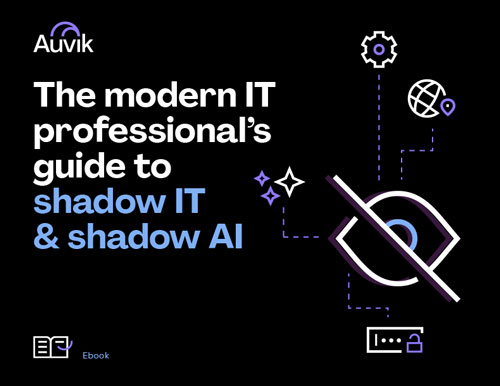What are financial control methods?
According to the Corporate Finance Institute, “Financial controls are the procedures, policies, and means by which an organization monitors and controls the direction, allocation, and usage of its financial resources.” Financial control methods sounds like the kind of thing you might need a post-secondary education to understand. But in reality, it’s not. Think of it as a very fancy way of saying, “these are the things you, as a business owner, should always be aware of when it comes to the money moving in and out of your company.”
When you’re a small managed service provider (MSP), the owner is the main salesperson, primary technician, head bookkeeper, and office manager. As your company grows, you begin to delegate tasks.
Often, the first task to be delegated is bookkeeping because you loathe it. Once you find a bookkeeper to handle your day-to-day accounting tasks, it becomes very tempting to hand it all over. “Welcome, brand-new bookkeeper! Here are the credentials to my bank accounts, credit cards, vendor accounts, merchant accounts, and keys to the office.” It may sound silly when you read it, but this is typically what happens.
The bookkeeper or bookkeeping firm may be completely trustworthy, and they may need all this information to do a thorough job for you. But problems can arise when you stop paying attention to your business because someone else is managing the money. Here are a few tips (aka financial control methods) to keep this from happening.
1. Know your business obligations
If your bookkeeper walked out tomorrow, would you know when your payroll taxes, sales taxes, and credit card payments are due? Don’t let go of important due dates for your business. Just because you’re no longer responsible for remitting payment doesn’t mean you shouldn’t know how to do it or when they’re due.
Be certain to obtain and keep copies of every tax and revenue filing. Know where the paid bills are stored. Know where the passwords are kept and when they change. As the owner of the company, you should oversee everything, including the financial activity.
2. Safeguard your accounts
If you provide your office manager a credit card to make office purchases, institute financial controls by placing a low limit on the card or require approval from you for any purchases over a defined amount. Letting one person manage all the accounts, including monthly purchases and recurring vendor payments, is too much control.
Ensure there’s a paper trail for each payment from the bank account and credit cards. Have a system in place that allows for spot checks and internal control.
As you grow, the financial needs of the business increase, and you’ll need more purchasing power. Consider having the bookkeeper handle purchasing while another person, such as a tech, receives the items from the vendor. Separating the buyer from the receiver helps keep everyone honest.
Does your company receive cash payments from customers? If so, use a locking box to manage the cash drawer and a day-end closing procedure to tie cash in with daily sales. There should be a reconciliation sheet for each day and a line item for every receipt of cash and expenditure.
This concept applies for petty cash funds in the office as well. If cash activity is light in your company, you can do this weekly or even monthly, but be sure it gets done.
3. Keep your eye on the books
Schedule time to review your financial reports each month. Having one person (who isn’t you) managing the books is fine as long as the company stays profitable, and your metrics stay on target. You can quickly scan the reports to determine if you’re hitting your desired margins.
Make a point to do this every month no later than the 10th of the month. This will help you catch problems before they become problems.
For example: If you know you regularly charge 20% over the purchase price for hardware, you should be able to see Hardware Revenue, multiply that by 80% and come somewhat close to your Hardware COGS (cost of goods and services) account each month. If the math doesn’t work, find out why.
Don’t allow posting of purchases to land in a “catchall” account. The minute your company starts losing money, you’ll immediately regret the “catchall” account. Good financial control methods dictate your start now and separate your costs and expenses to align with your margin measuring. You’ll be glad you did!
Financial controls in a nutshell
- Have written procedures for managing the accounts of your company.
- Know how to manage your business finances and obligations, even if you never have to do it.
- Use low spending limits when delegating purchasing activity.
- Spot check your accounts regularly to ensure procedures are being followed.
- Create a day-end or week-end cash reconciliation procedure.
- Use specific expense and COGS accounts for identifying expenditures.
- Review your financials and measure your profits regularly.
Following these simple tips will keep your MSP business running smoothly while keeping you out of the accounting chair.
Looking for more great advice on managing your MSP’s financials? Check out Ep028 of the Frankly MSP podcast, where we chat with Rayanne Buchianico about cashflow management, best ways to set up your books, and how to optimize accounting processes.


